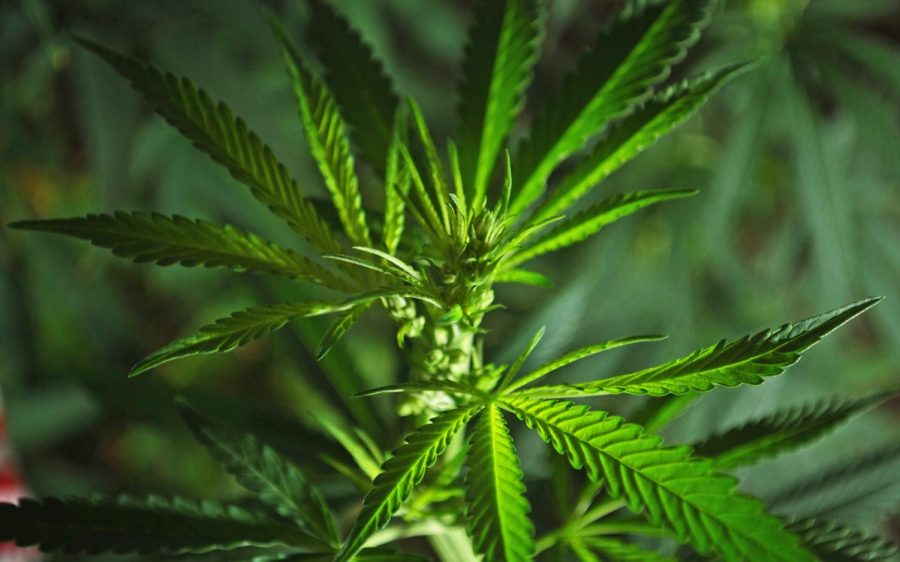Government weed is more similar to hemp than dispensary-sold cannabis, which could soon be studied by scientists
A new study suggests that a cultivation site at the University of Mississippi – which has been certified by the Drug Enforcement Administration (DEA) to grow research-grade cannabis for the last few decades – is yielding plants that fall below the quality sold in legal markets.
Published in the journal Frontiers, the study demonstrates that the University’s government-grown cannabis is genetically dissimilar to the type(s) that consumers are purchasing at retailers in states that have legalized the plant for medical and/or recreational use.
After collecting 49 samples of commercially available cannabis, cultivated hemp, wild hemp, and “research-grade” cannabis, researchers found that the university’s cannabis was comparable to wild hemp in terms of its genetic composition, as opposed to legally-sold cannabis.
“Our results clearly demonstrate that NIDA cannabis samples are substantially genetically different from most commercially available drug-type strains and share a genetic affinity with hemp samples in several of the analyses,’ reads an excerpt from the study.
The study authors went on to say that, considering the outcome of previously-conducted genetic and previous chemotypic investigations, NIDA is supplying cannabis products that do not conform with the quality of products currently being made available to consumers in legal avenues.
“We do not claim that NIDA is supplying hemp for cannabis research, rather we are confident that our analyses show that the ‘research-grade cannabis’ supplied by NIDA is genetically different from the retail drug-type samples analyzed in this study.”
Nonetheless, university authors remain optimistic that the NIH and NIDA will continue to “support the cultivation of cannabis that is representative of what medical and recreational consumers are using.”
Scientists could study dispensary products if congressional cannabis research bill is enacted
Thursday, October 21 saw a bipartisan group of federal lawmakers present a bill that could potentially ease restrictions on cannabis research.
Titled, “Medical Marijuana Research Act,” the bipartisan cannabis research bill would grant scientists the power to conduct studies on products sourced from state-legal dispensaries.
The Medical Marijuana Research Act, which was submitted by Rep. Earl Blumenauer [D-OR] and Rep. Andy Harris [R-MD], would make it easier for researchers to apply for approval to investigate cannabis. Moreover, the proposed bill would impose deadlines on federal agencies to review applications promptly.
“This legislation would remove barriers for research into cannabis and facilitate access to an increased supply of higher quality medicinal-grade cannabis for research purposes. Congress is hopelessly behind the American people on cannabis, and the quality of our research shows why that is an urgent problem,” Blumenauer told Marijuana Moment.
“Despite the fact that 99 percent of Americans live in a state that has legalized some form of cannabis, federal law is still hamstringing researchers’ ability to study the full range of health benefits offered by cannabis, and to learn more about the products readily available to consumers,” Blumenauer added.
What would the Medical Marijuana Research Act do?
According to Blumenauer, who spoke about the bill during a meeting at the House on the day of its unveiling, researchers are forced to “jump through hoops and comply with onerous requirements” if they wish to conduct research into cannabis’ medical potential.
The Medical Marijuana Research Act seeks to revise the Controlled Substances Act (CSA) to introduce an amended and distinct registration process specifically for cannabis.
Blumenauer claims that the bill would accomplish the following;
- Simplify the licensing process for researchers who want to perform cannabis studies;
- Provide researchers with access to a broader range of higher quality medical-grade cannabis;
- Minimize regulatory restrictions pertaining to cannabis research;
- Utilize solid scientific evidence to demonstrate the safety and efficacy of cannabis and the plant’s derived substances.
The legislation – which was co-sponsored by Representatives Debbie Dingell [D-MI], Steve Cohen [D-TN] Morgan H. Griffith [R-VA], Ed Case [D-HI-1] and Barbara Lee [D-CA] – stipulates that the licensing process must be conducted outside of the National Institute on Drug Abuse (NIDA) by the Drug Enforcement Agency (DEA).
According to the bill’s language, the purpose of this rule is to maintain a sufficient supply of study-worthy cannabis. Conversely, in June, the DEA confirmed that it would start approving additional cannabis manufacturers. This means that we are likely to see an expanding field of cannabis studies surface over the next few years.








